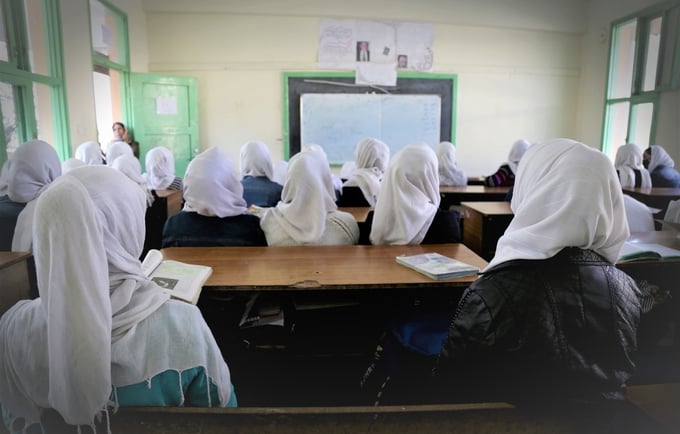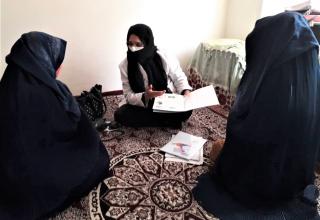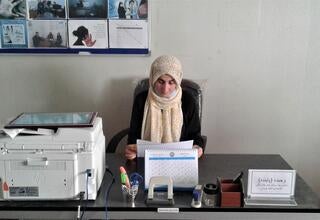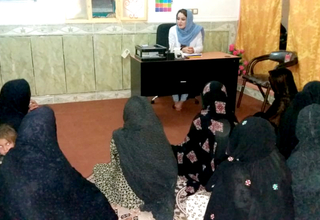Amina* (22) loved learning. She was studying for her bachelor’s degree and was looking forward to finding a job that meaningfully contributed to her society. However, these dreams were cut short when her father married her to young man in the village at the age of 20. Her husband was a domineering man who refused to allow Amina to continue her education or seek employment. He took to abusing her physically and day by day Amina saw her dream for a future fading.
Bruised and depressed, Amina found herself at the district hospital where she was referred to the Family Protection Center (FPC) based on her injuries. For the first time in years, Amina saw a glimmer of hope and the potential to take her life back. With support from the FPC via psychosocial counseling, Amina’s mental health and courage returned. She was placed in contact with the Family Response Unit (FRU), located in the nearby police precinct, who are part of the GBV referral mechanism who provide law enforcement and legal support for GBV survivor. There, Amina came to the decision that she wanted a divorce from her husband.
The FRU took on her case and advocated for Amina’s rights. In the end, a divorce was granted, and Amina felt a huge weight lifted from her shoulders. She is immensely grateful to the FPC and FRU who supported her throughout the process and enabled her to reclaim her lease on life. Amina has now found employment in her city and is excited about what the future may hold and the people she can help—including telling her story of how the FPC and FRU saved her life.
Gender- based violence is pervasive in Afghanistan and women and girls are at the extreme end of the social ladder. Of women ages 15-49 who have ever been married, 56% (DHS 2015) experience physical and/or sexual violence. With the lock-down and curfews due to COVID-19 in major cities, tensions in households increased and fueled domestic violence and other forms of GBV, making it harder for women and girls to reach the FPCs. During COVID-19 the FPCs in all provinces remained operational to provide live-saving services. During these challenging times, the Laghman FPC provided support and services to 664 survivors.
The work of the Family Protection Center in Laghman province has been made possible by the generous support of FCDO since 2015.
*Name changed to Amina for confidentiality.




